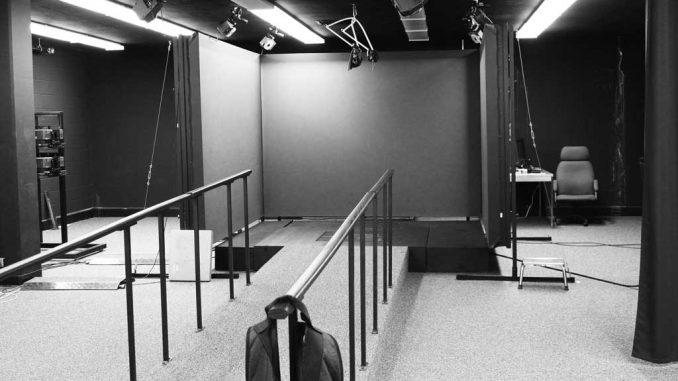
For Stephanie Gill, a 27-year-old online entrepreneur with cerebral palsy, walking down the street from her home in Las Vegas sometimes feels like standing on a cliff edge, at which point her only goal is to not fall.
Every step is a conscious effort to stay balanced. The postural strategies she developed during the years, like seesawing from side to side or walking up on her toes, allow her to survive the jammed streets of her city.
Cerebral palsy is a neurological disorder in which the brain does not send the right signals to the muscles. This disorder, which causes movement problems, is the result of abnormalities in the developing brain before birth and early childhood.

Gill has mastered balance, but hasn’t gained much knowledge about her condition.
“Even if it was severe, how would I know?” Gill said. “Not to pull a Lady Gaga but I was born this way.”
In early October, Gill flew from Las Vegas to Philadelphia to participate in a research study, conducted in the Virtual Environment and Postural Orientation lab at Temple, which explores how individuals with the disorder respond to balance challenges.
“There aren’t a lot of physicians or researchers who are really asking questions about why adults with CP have these problems, or how to alleviate them,” Elizabeth Thompson, a neurological physical therapist and researcher in the study, said.
Gill saw her participation in the study as an opportunity to improve her body knowledge. For this, researchers at Temple devised a virtual environment and moving platforms in the VEPO lab to challenge Gill’s balance.
First, Gill wore 3-D glasses, a safety harness and bulb-like sensors to track her muscle activity as she stood within the “cave,” a three-wall virtual environment. Gill’s field vision was fully covered by the scene of a spinning room while the ground beneath her feet wobbled.
“The virtual environment wasn’t as intimidating as I thought,” Gill said.
Then she stood on a Wii balance board connected to a television that detects leaning and shifting in posture.
In both instances, Gill felt like walking on the uneven surfaces of Las Vegas. Once again she struggled to keep her balance even though the risk of falling during the study was very minimal.
“The platforms weren’t slowly moving at all,” Gill said.
“Our ability to learn about this process is a little complicated by the fact that each person has very different types of muscle tightness or spasticity, very different levels of muscle strength or weakness,” Thompson said. “These factors seem to have a significant effect on how difficult it is to stay balanced.”
The VEPO lab, located in Pearson Hall, received a grant for four years from the National Institutes of Health to fund the balance study. Dr. Richard Lauer and Dr. Carole Tucker are in charge of the study that began April 2012.
“We’re hoping to understand more about how balance and posture are processed differently in a person’s brain when they have CP, and to use that information to improve physical therapy for people with CP,” Thompson said.
All participants are compensated $25 upon completion of the two-hour study and reimbursed for transportation expenses.
“I just knew this was something I was going to do,” Gill said. “Plus, I love traveling.”
“I’m incredibly grateful to the participants,” Thompson said. “We have a lot of conversations with the adults with CP, asking them about their everyday lives and how they feel like their health changes as they get older.”
Thompson said all participants have been enthusiastic about the research project. They gave researchers feedback on what movements and activities are hard for them as well as new ideas for future studies, she said.
Back in Las Vegas, Gill awaits for the results of her test as she continues with her everyday movement challenges, none of which had prevented her from finishing her contract work with Microsoft.
Laura Ordonez can be reached at laura.ordonez@temple.edu.



Be the first to comment